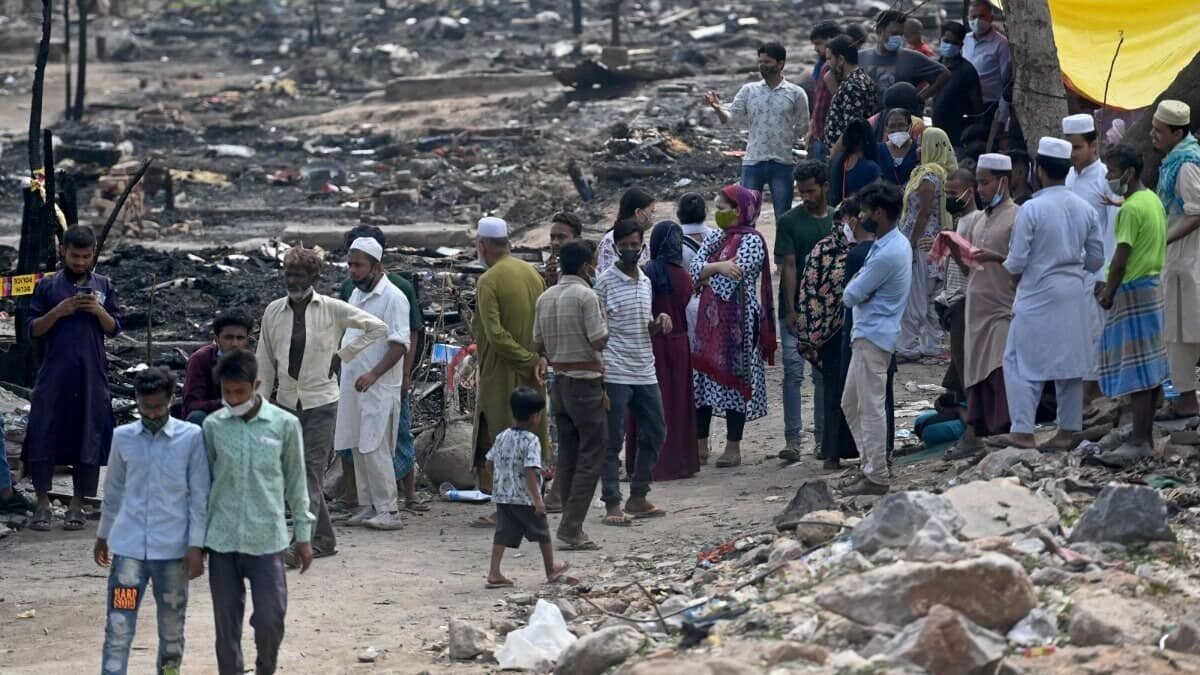
JNU report proof of AAP 'settling immigrants' in Delhi: BJP
What's the story
A research report from Jawaharlal Nehru University (JNU) on illegal immigrants in Delhi has sparked a political storm.
The 114-page report, titled Illegal Immigrants to Delhi: Analysing Socio-economic and Political Consequences, alleged that that migration from Bangladesh and Myanmar has changed Delhi's social, political, and economic landscape.
Bharatiya Janata Party's spokesperson Sambit Patra used the report to allege that these immigrants are thriving under the Aam Aadmi Party (AAP)'s protection.
Allegations
Migrants are taking over low-paying jobs: Patra
"These migrants are taking over low-paying jobs, particularly in construction, which otherwise would have gone to workers from Indian states," he alleged.
"Religious preachers, brokers, and middlemen are involved in helping these immigrants procure fake documents, including bank accounts, despite stringent KYC norms."
Accusing the AAP of giving them direct patronage, he said that such activities are are not just altering the demographic structure but also "weakening democracy by creating fake voters."
Report details
JNU report's methodology and findings under scrutiny
The controversial report, which is part of an Indian Council of Social Science Research (ICSSR) project, was conducted by JNU and Tata Institute of Social Sciences (TISS) scholars.
It sought to study if Delhi's government uniquely incentivizes Rohingyas and illegal immigrants.
The study claimed some illegal immigrants got state benefits like water and Aadhaar cards in various states, including Delhi.
However, its methodology has been questioned by several academics.
Criticism voiced
Study's approach and timing criticized by JNUTA President
Moushumi Basu, President of the Jawaharlal Nehru University Teachers's Association (JNUTA), has slammed the study's methodology as "compromised."
She asked how one identifies an illegal immigrant and pointed out that similar studies were released before elections in other states.
The report found that 96.3% of respondents identified as Muslim and identified areas like Jafrabad and Jamia Nagar as immigrant hotspots.
Cultural shift
Report highlights changes in Delhi's cultural composition
The JNU report also observed changes in religious and cultural compositions resulting in social tensions in certain parts of Delhi.
"This has sometimes led to social tensions and conflicts, as cultural differences can create misunderstandings between local communities and migrants," the report stated.
The study employed a mixed-method design with a sample of 400 people surveyed across Delhi, including interviews of community leaders and officials.